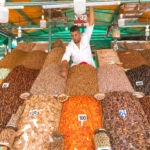
Africa’s agricultural landscape is undergoing a transformation, and one of the most influential forces behind this shift is the rise of regional trade blocs. With vast agricultural potential across the continent, African countries are recognizing the need for improved collaboration to unlock cross-border opportunities. As a result, regional integration and coordinated African agricultural trade policies are now playing a central role in shaping the future of agri-business.
Understanding Regional Trade Blocs in Africa
Regional trade blocs are agreements among neighboring countries to facilitate trade, reduce tariffs, and improve economic ties. In Africa, prominent blocs like the African Continental Free Trade Area (AfCFTA), the East African Community (EAC), the Economic Community of West African States (ECOWAS), and the Southern African Development Community (SADC) are creating frameworks to enhance cooperation in trade—including agriculture.
These trade blocs aim to eliminate barriers that previously restricted agricultural exports and imports, such as high tariffs, poor infrastructure, and inconsistent regulatory standards. Through the adoption of African agricultural trade policies that promote harmonization and inclusivity, countries are finding new opportunities to participate in global markets more efficiently.
Benefits of Trade Blocs for African Agri-Business
One of the most tangible benefits of trade blocs is the increase in intra-African trade. By reducing duties and simplifying customs processes, African countries can trade agricultural goods more easily across borders. This not only reduces dependence on imports from outside the continent but also strengthens food security and creates jobs locally.
For agri-businesses, these policies make it more viable to scale operations. Whether a farmer in Kenya is exporting avocados to Uganda or a cashew processor in Côte d’Ivoire is shipping products to Nigeria, streamlined African agricultural trade policies make the entire process faster, safer, and more profitable.
Trade blocs also improve investment climates. With unified trade regulations and reduced political risk, foreign investors are more confident in funding agriculture-related infrastructure, logistics, and value-added processing. These investments lead to better roads, storage facilities, irrigation systems, and technology for farmers and producers across the region.
Challenges Facing African Agricultural Trade Policies
Despite the promise of regional integration, there are challenges in the implementation of African agricultural trade policies. Many trade blocs face delays due to inconsistent national legislation, bureaucratic inefficiencies, and limited funding. The lack of adequate transportation networks and cold chain infrastructure also hinders the smooth movement of perishable agricultural products.
Moreover, while trade policies are being crafted with good intentions, there is sometimes a disconnect between policy and practice on the ground. Farmers and small agri-entrepreneurs often struggle with accessing the information and tools needed to benefit from new trade agreements.
Another concern is the inequality in development across African countries. Some nations are far ahead in modernizing their agricultural sectors, while others lack the capacity or resources to comply with new regional standards. This can result in imbalanced trade relationships and underutilized potential.
The Role of AfCFTA in Agricultural Trade
Among all trade blocs, AfCFTA stands out as a game-changer. Launched in 2021, it is the largest free trade area in the world in terms of participating countries. AfCFTA seeks to create a single market for goods and services, including agricultural products, across all 54 African nations.
Its emphasis on improving African agricultural trade policies includes harmonizing sanitary and phytosanitary standards, facilitating digital trade platforms, and encouraging the development of agro-industrial zones. This offers African farmers and producers better access to regional markets, reduces export costs, and enhances competitiveness.
AfCFTA is also working toward gender and youth inclusion in agri-business, recognizing that inclusive trade policy design is vital for long-term growth.
The Importance of Harmonized Standards
Trade in agricultural products is heavily influenced by standards. Countries importing goods want to ensure they meet safety, quality, and environmental benchmarks. If African countries align their agricultural standards through regional trade blocs, they can present a unified front when negotiating with global buyers.
Harmonization helps reduce disputes and delays at border points. It ensures that once a product has met the required standard in one country, it can freely move across others in the bloc without undergoing repetitive inspections or additional certification. This is one of the main goals of African agricultural trade policies today.
By focusing on this level of consistency, African agri-businesses are in a better position to compete with exports from other continents and respond to the growing global demand for food products from Africa.
Case Study: West Africa’s Regional Agri-Trade
In West Africa, ECOWAS has made notable progress in unifying its member states under common agricultural trade strategies. Through its Agricultural Policy (ECOWAP), the bloc supports increased agricultural productivity, improved food security, and stronger trade partnerships among members.
Countries like Ghana, Nigeria, and Senegal benefit from policies that promote cross-border collaboration in seed systems, fertilizer distribution, and shared research. These advancements have been critical in building a regional market that supports food sovereignty and economic stability.
Such coordinated efforts reflect how African agricultural trade policies—when properly implemented—can have lasting impacts on productivity and prosperity.
Looking Ahead: A Collaborative Future
The future of African agri-business is tied closely to the success of regional cooperation. Governments, private sector actors, and civil society must continue working together to refine and implement policies that benefit both smallholder farmers and large-scale exporters.
Digitalization, investment in transport corridors, and inclusive policy-making are essential pillars for this transformation. Equally important is the promotion of cross-border knowledge exchange and the removal of non-tariff barriers that still slow down trade.
With the right political will and continued stakeholder engagement, African agricultural trade policies will play a defining role in driving the continent’s agri-business forward.
Conclusion
Regional trade blocs are no longer abstract diplomatic agreements—they are becoming practical tools for transforming African agriculture. Through well-designed and effectively implemented African agricultural trade policies, these blocs are opening new markets, strengthening food systems, and empowering communities.
The road ahead will require persistence, collaboration, and innovation. But the direction is clear: a more integrated Africa with a unified voice in global agricultural trade.











Add comment